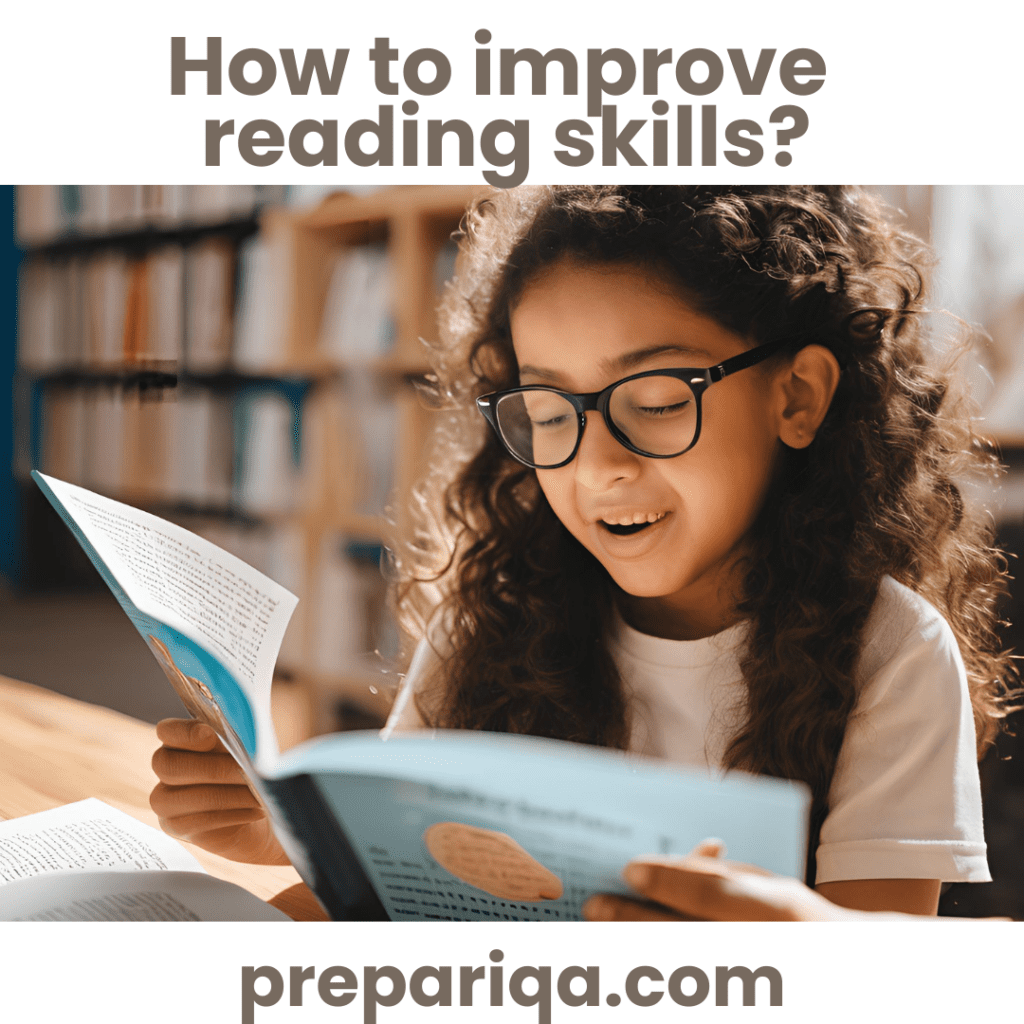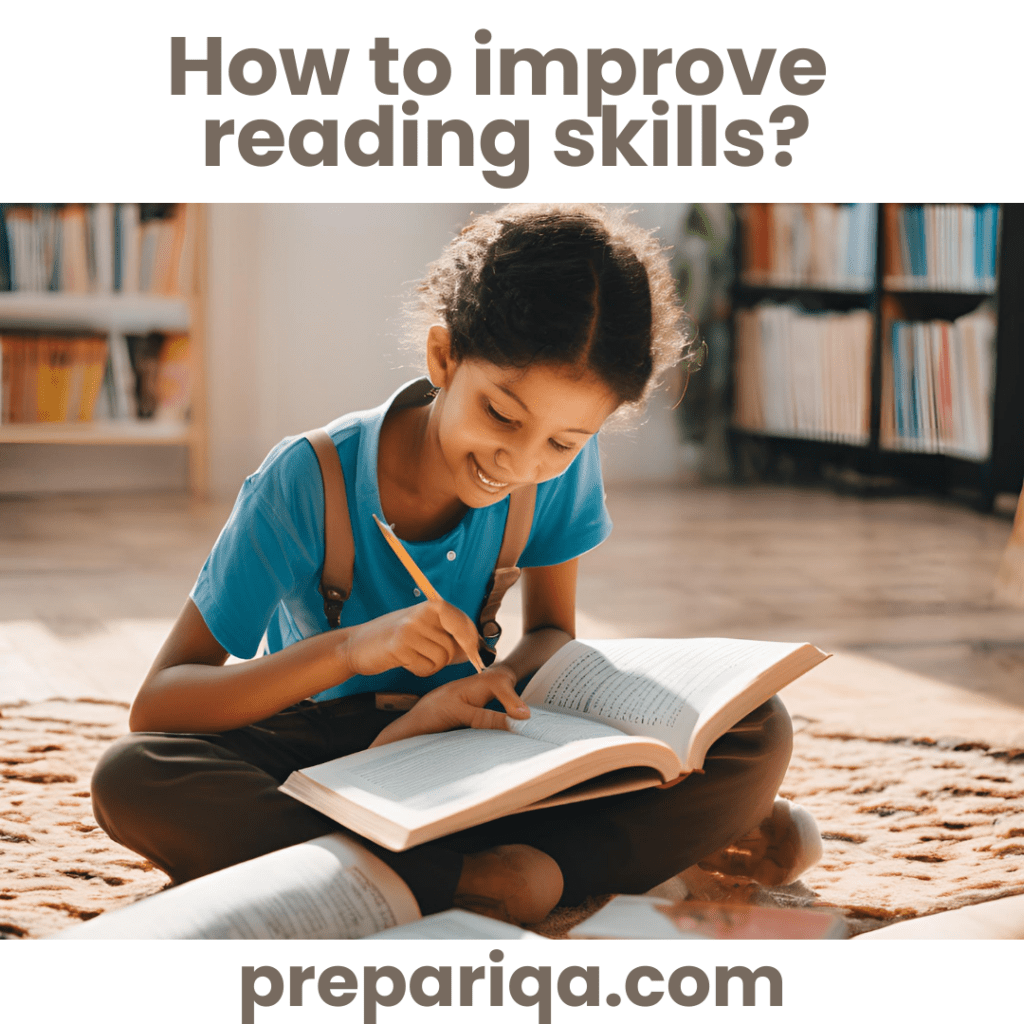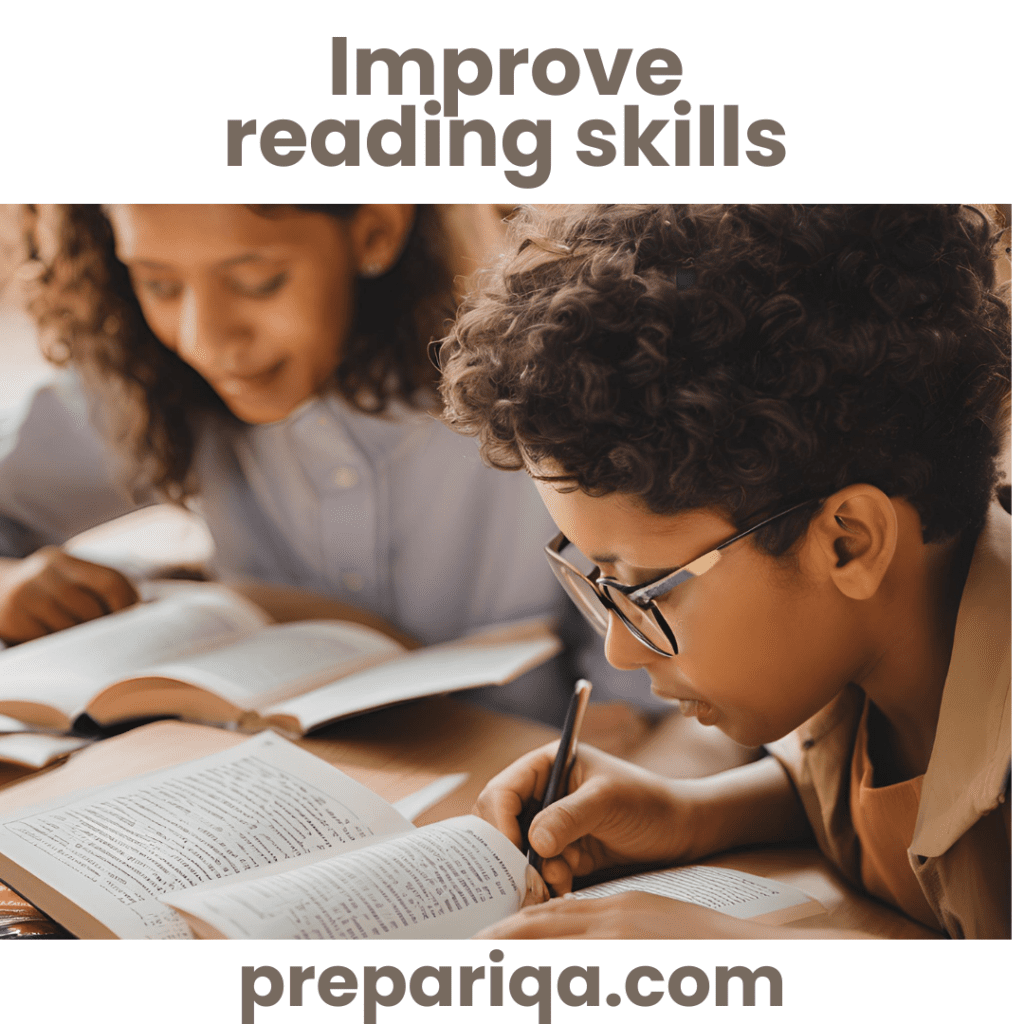Reading is a fundamental skill that impacts every area of learning, yet many people wonder: How to improve reading skills? The answer lies in a combination of practice, strategic techniques, and creating the right environment for success. In this blog, we’ll explore actionable strategies to enhance your reading ability, from building comprehension to increasing reading speed. We’ll cover how to establish a reading-friendly environment, use effective techniques to understand and retain what you read, and even how to make reading a more enjoyable habit. By the end of this guide, you’ll be on your way to becoming a more skilled and confident reader.
Table of Contents
Why Is it important to improve reading skills?
Strong reading skills are foundational for both academic success and personal growth. Here’s why improving your reading skills is so important:
- Academic Achievement: Good reading skills are crucial for understanding textbooks, exam questions, and research materials. The better your reading skills, the more effectively you can learn new information and excel in your studies.
- Lifelong Learning: Reading is a gateway to knowledge. Whether you’re reading for school, work, or pleasure, strong reading skills will enable you to access and understand a wider range of information.
- Improved Communication: Reading enhances your vocabulary, comprehension, and critical thinking skills, all of which contribute to more effective communication in both written and spoken forms.
By improving your reading skills, you’ll be better prepared for academic challenges and more capable of engaging with the world around you.

Creating the Right Reading Environment
Your environment plays a significant role in how well you can focus and comprehend what you’re reading. Here’s how to create a reading-friendly space:
- Find a Quiet Space: A quiet, comfortable spot is ideal for reading. This could be a cozy corner of your room, a library, or even a peaceful outdoor area. The key is to choose a location where you can read without interruptions.
- Organize Your Reading Materials: Keep your books, notes, and any other reading materials organized. Whether you’re reading for school or pleasure, having everything you need within reach helps you stay focused.
- Good Lighting: Proper lighting is crucial for comfortable reading. Natural light is best, but if you’re reading at night, use a lamp with a soft, warm light to reduce eye strain.
By setting up an environment that supports concentration, you’ll find it easier to immerse yourself in your reading and understand the material better.
Developing Effective Reading Strategies
Improving your reading skills involves using strategies that help you read more efficiently and effectively. Here are some techniques to try:
- Preview the Text: Before diving into a new text, take a few minutes to preview it. Look at the headings, subheadings, and any bold or italicized words. This will give you a sense of the structure and main ideas, making it easier to understand the material as you read.
- Active Reading: Engage with the text as you read. This means underlining key points, taking notes in the margins, or highlighting important passages. Active reading helps you stay focused and improves comprehension.
- Summarize as You Go: After reading each section or chapter, take a moment to summarize what you’ve just read in your own words. This helps reinforce your understanding and makes it easier to remember the information later.
These strategies not only improve comprehension but also make reading a more interactive and enjoyable experience.

Expanding Your Vocabulary
A rich vocabulary is a key component of strong reading skills. Here’s how to build your vocabulary while reading:
- Look Up New Words: Whenever you encounter a word you don’t know, take the time to look it up. Understanding these new words will improve your comprehension of the text and gradually expand your vocabulary.
- Use a Vocabulary Journal: Keep a notebook or digital file where you record new words you’ve learned. Include the word, its definition, and an example sentence. Review your vocabulary journal regularly to reinforce your learning.
- Read Diverse Materials: Reading a variety of texts—from fiction to non-fiction, from newspapers to novels—exposes you to different writing styles and vocabulary. The more diverse your reading materials, the more opportunities you’ll have to learn new words.
Expanding your vocabulary enhances your understanding of the texts you read and improves your ability to express yourself.
Improving Reading Speed and Comprehension
Many people struggle with slow reading speeds or difficulty comprehending complex texts. Here’s how to address these issues:
- Practice Regularly– The more you read, the better and faster you’ll become. Make reading a daily habit, even if it’s just for 15-20 minutes a day. Over time, you’ll notice your reading speed and comprehension improving naturally.
- Use a Pointer– One way to increase your reading speed is to use your finger or a pen as a pointer to guide your eyes along the lines of text. This method helps prevent your eyes from wandering and keeps you focused on the text, allowing you to read faster.
- Avoid Subvocalization– Subvocalization is the habit of silently pronouncing each word in your head as you read. While it can be helpful for understanding complex material, it also slows down your reading speed. To reduce subvocalization, try to focus on phrases or groups of words rather than individual words.
By practicing these techniques, you’ll be able to read faster while still understanding and retaining the information.

Balancing Reading for Study and Pleasure
Reading for study and reading for pleasure are both important, and balancing the two can enhance your overall reading experience.
- Set Aside Time for Pleasure Reading: While it’s important to focus on academic reading, don’t forget to read for fun as well. Whether it’s a novel, a magazine, or a blog, reading for pleasure keeps your love of reading alive and can even improve your academic reading skills.
- Choose Books You Enjoy: Reading shouldn’t feel like a chore. If you find a book boring, it’s okay to put it down and find something that interests you more. The more you enjoy what you’re reading, the more likely you are to stick with it.
- Mix It Up: Reading a variety of genres and topics can keep things interesting and expose you to different writing styles. This diversity in reading material can help improve your skills in different areas, from critical thinking to creative imagination.
Balancing academic and pleasure reading ensures that you continue to develop your reading skills while also enjoying the process.
Conclusion: Enhancing Your Reading Skills
Improving your reading skills is a journey that requires patience and practice. By creating a conducive reading environment, employing effective strategies, expanding your vocabulary, and balancing different types of reading, you can become a more proficient and confident reader. Remember, reading is not just a skill—it’s a gateway to knowledge, creativity, and a deeper understanding of the world. Start implementing these tips today, and watch your reading abilities grow stronger over time. Learn more here.
FAQs
Q1: How can I improve my reading skills quickly?
A: Improving reading skills takes time, but you can start by practicing regularly, using active reading strategies like summarizing, and expanding your vocabulary. Over time, you’ll notice significant improvements.
Q2: What are some effective strategies for reading comprehension?
A: Effective strategies include previewing the text before reading, actively engaging with the material by taking notes or highlighting, and summarizing each section to reinforce understanding.
Q3: How can I increase my reading speed?
A: To increase reading speed, practice regularly, use a pointer to guide your eyes along the text, and try to minimize subvocalization. With consistent practice, your speed will improve.
Q4: How does expanding my vocabulary help with reading?
A: A broader vocabulary helps you understand texts more easily, improves comprehension, and allows you to engage with more complex material. Learning new words regularly enhances your overall reading experience.
Q5: Is it important to read both fiction and non-fiction?
A: Yes, reading both fiction and non-fiction provides a well-rounded reading experience. Fiction enhances creativity and empathy, while non-fiction improves knowledge and critical thinking skills.
Q6: How can I balance reading for study and pleasure?
A: Set aside time specifically for pleasure reading and choose books that genuinely interest you. Mixing different genres and topics can also keep your reading experience enjoyable and diverse.
Q7: What should I do if I find a book boring?
A: If you find a book boring, it’s okay to stop and find something more interesting. Reading should be enjoyable, and choosing books that capture your interest will help you stay motivated to read more.
